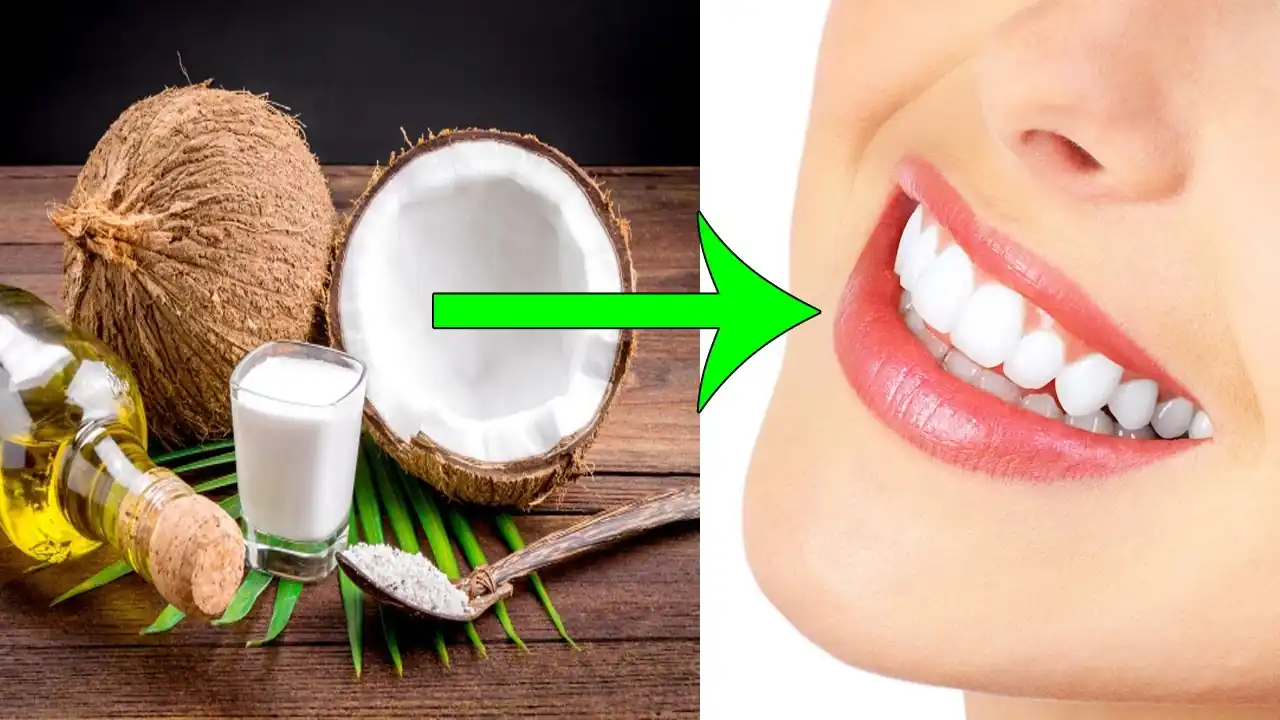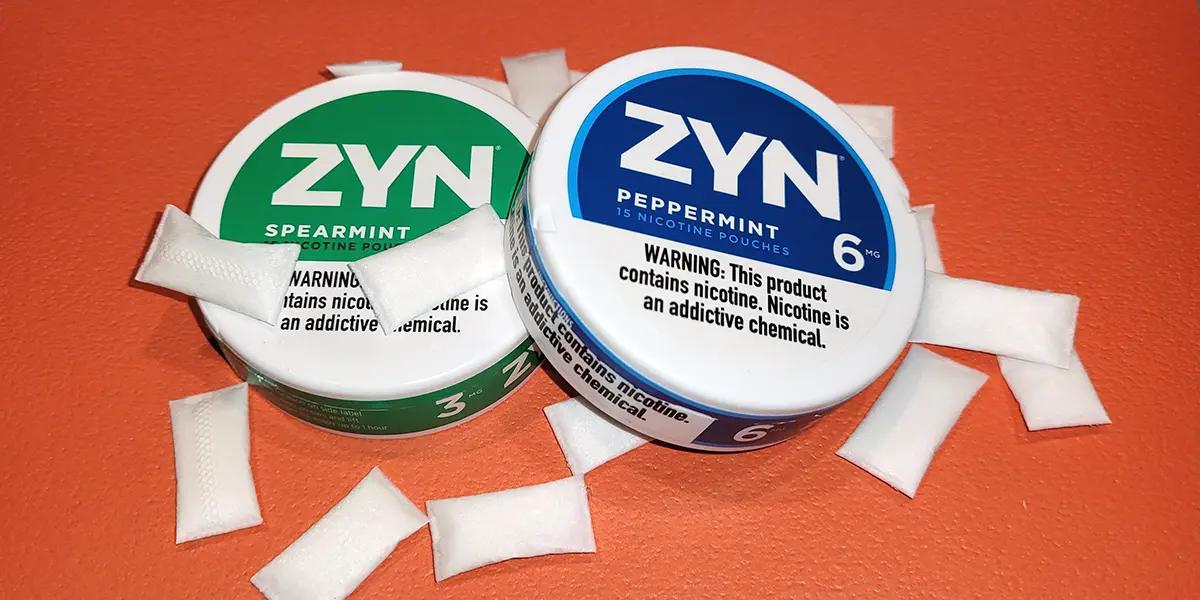You’ve probably heard people rave about it — but really, is coconut oil good for your teeth? That question’s been floating around in both holistic wellness circles and modern dentistry for years now. And honestly, it’s kind of fascinating how a kitchen staple could end up in conversations about oral health, tooth decay, and dental hygiene.
Coconut oil isn’t new, though. It’s an ancient thing — Ayurvedic medicine has been using it for oil pulling for centuries. You swish a spoonful around your mouth, spit it out, and somehow your teeth feel cleaner. Modern research is now catching up, studying how lauric acid (the main fatty acid in virgin coconut oil) fights bacteria like Streptococcus mutans, the one that causes plaque and cavities.
And that’s where things get interesting — because coconut oil doesn’t just “freshen breath.” It seems to go deeper. It might reduce plaque buildup, help prevent gum disease, and even offer mild teeth whitening effects without the harshness of hydrogen peroxide. Some dentists agree it has potential as part of your oral health routine, especially if you’re leaning toward natural, sustainable dental care.
So yeah, the short answer? Coconut oil can be good for your teeth — if you use it right. But like most natural remedies, it’s not magic. It works best when it’s part of a balanced dental hygiene routine, alongside your fluoride toothpaste, dental checkups, and professional dental care.
Understanding Coconut Oil: Composition and Oral Benefits
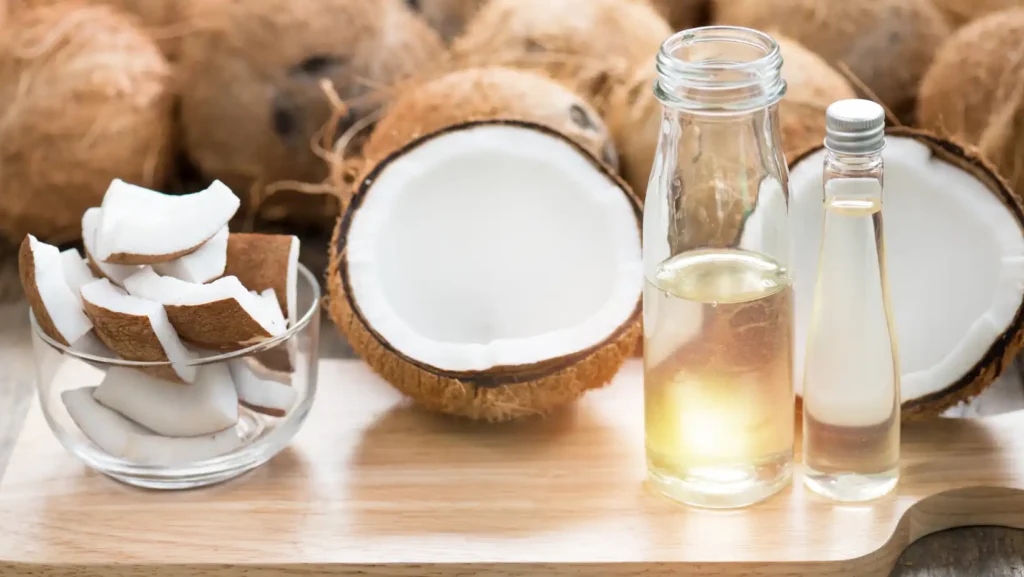
Now, if you’re wondering why coconut oil gets so much dental praise, it comes down to what’s inside it. So — what makes coconut oil good for your teeth, exactly?
It’s mostly made up of medium-chain triglycerides (MCTs), which include lauric acid, capric acid, and caprylic acid. These are special because they have antibacterial, antifungal, and even anti-inflammatory properties. When you use coconut oil for oil pulling or brushing, these compounds can help reduce plaque-causing bacteria, calm gum inflammation, and even prevent bad breath (which, let’s be honest, is half the battle).
There’s also a pH-balancing effect that supports your oral microbiome — helping the good bacteria thrive while keeping harmful ones like Streptococcus mutans and Candida albicans under control. That’s why some people say it feels “cleaner” than regular mouthwash after a few days of use.
Coconut Oil vs. Traditional Mouthwash
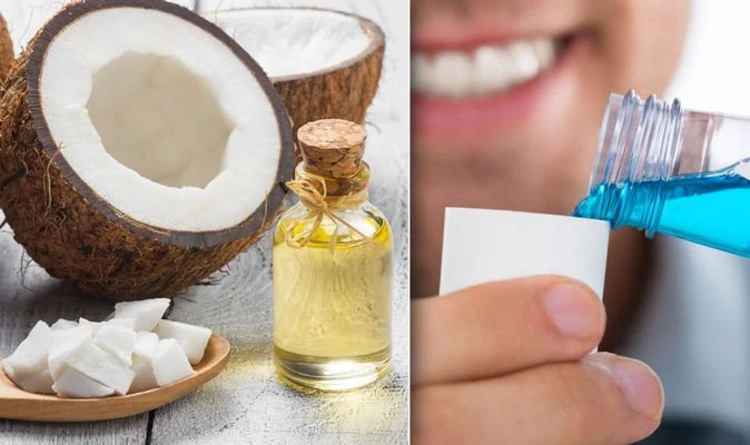
Let’s be fair — chlorhexidine mouthwash is the gold standard in dentistry for killing oral bacteria. But it’s also strong, sometimes too strong. It can cause tooth discoloration and alter your sense of taste. Coconut oil, on the other hand, works gently.
| Feature | Coconut Oil | Traditional Mouthwash |
| Main Active Ingredient | Lauric Acid | Chlorhexidine / Alcohol |
| Effect on Enamel | Gentle | Can cause mild erosion over time |
| Microbiome Impact | Balances good and bad bacteria | Kills broadly, even beneficial bacteria |
| Taste & Feel | Mild, natural | Harsh, chemical |
| Sustainability | 100% natural and biodegradable | Often plastic-packaged and chemical-based |
And while it may not replace mouthwash completely, it complements it well — especially if you’re trying to avoid harsh ingredients or reduce your exposure to alcohol-based dental products.
Pro Tip: If you’re switching from conventional mouthwash to coconut oil pulling, start slow — maybe 5 minutes a day. Your oral cavity needs time to adjust, and you’ll probably notice a cleaner, fresher feeling after a week or two.
I. Benefit #1: Reduces Plaque and Bacteria Naturally
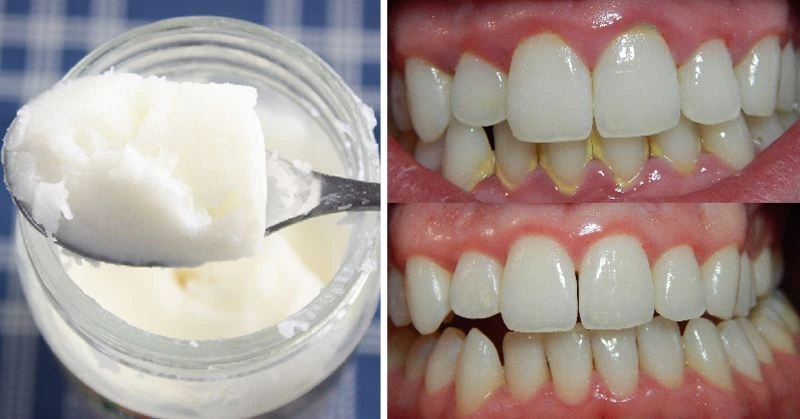
So here’s where the science gets real. Coconut oil isn’t just a wellness trend — it’s been studied. And several studies have shown that coconut oil pulling can significantly reduce plaque buildup and the bacterial count of Streptococcus mutans — the main villain behind tooth decay and gum disease.
The secret? Lauric acid. It has strong antimicrobial and antibacterial properties, which help break down the lipid membranes of harmful bacteria in your oral cavity. That means fewer sticky films forming on your teeth, and less acid being produced that could erode your tooth enamel.
Think of it like this — when you swish coconut oil, you’re basically rinsing away bacterial colonies before they can harden into plaque. And since coconut oil is gentle and non-abrasive, you’re not damaging the enamel or irritating your gums like some strong chemical rinses might do.
If you’ve ever struggled with that “fuzzy teeth” feeling by mid-afternoon, try oil pulling in the morning. It’s simple, but the difference in freshness and smoothness can be kind of surprising.
Daily Use and Practical Tips
Here’s how to make it part of your dental routine without overcomplicating things:
- Start Small: Begin with just a teaspoon of virgin coconut oil (unrefined, ideally).
- Swish Gently: Don’t gargle — just move it around for 10–15 minutes.
- Spit It Out (not in the sink): Oil can clog pipes, so use a tissue or trash bin.
- Brush After: Use your fluoride toothpaste afterward to finish the clean.
Pro Tip: Want a bit of extra freshness? Add a drop of peppermint or clove essential oil to your coconut oil — both have antimicrobial properties and help with bad breath.
Studies Highlight:
A 2016 article in the Journal of the International Society of Preventive and Community Dentistry found that oil pulling with coconut oil significantly reduced Plaque Index and Gingival Index scores after 30 days — comparable to chlorhexidine mouthwash, but without side effects like tooth staining.
II. Benefit #2: Prevents Cavities and Tooth Decay
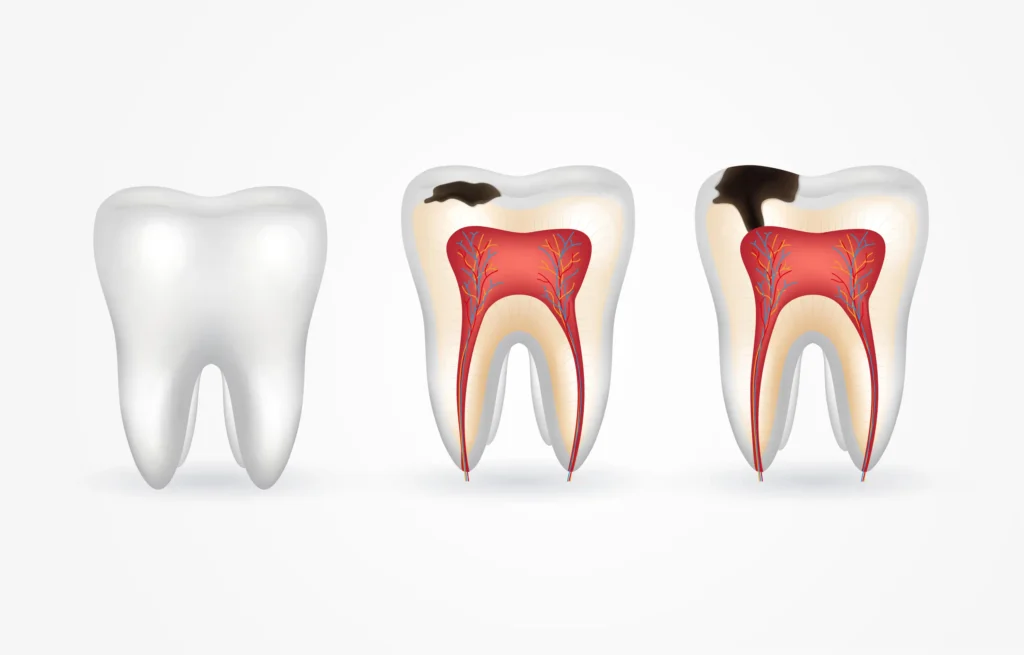
Here’s another reason many people say “yes” when asked is coconut oil good for your teeth — it helps protect against tooth decay and cavities.
How to tell if you have a cavity? Cavities usually form when bacteria feed on sugars, producing acids that eat away at your enamel. Coconut oil doesn’t just clean your mouth; it helps rebalance the oral microbiome — the community of bacteria in your mouth. Its antimicrobial and antifungal compounds (especially lauric acid and capric acid) reduce the bacteria that trigger acid production in the first place.
It’s like giving your mouth a reset button every morning. Over time, this can lower your risk of decay — especially if you pair it with proper brushing, a balanced diet, and regular dental checkups.
Science Spotlight
Several dental studies suggest that regular coconut oil pulling may lead to measurable decreases in S. mutans counts. That’s the bacteria most linked to cavity formation. There’s even evidence it helps create an environment that supports enamel remineralization — not by adding minerals directly, but by reducing acid attacks long enough for saliva to naturally repair early damage.
Comparative Snapshot:
| Factor | Coconut Oil Pulling | Regular Mouthwash |
| Targets S. mutans | ✅ Yes | ✅ Yes |
| Harsh on Gums | ❌ No | ✅ Sometimes |
| Helps Remineralize Enamel | ✅ Indirectly via pH balance | ❌ No |
| Suitable for Daily Use | ✅ Gentle | ⚠️ Often too strong |
| Naturally Moisturizes Mouth | ✅ Yes | ❌ No |
Pro Tip: If you notice your teeth feeling sensitive or slightly rough, try oil pulling before brushing — it coats your enamel and can reduce the harshness of toothpaste abrasives.
III. Benefit #3: Whitens Teeth Gently
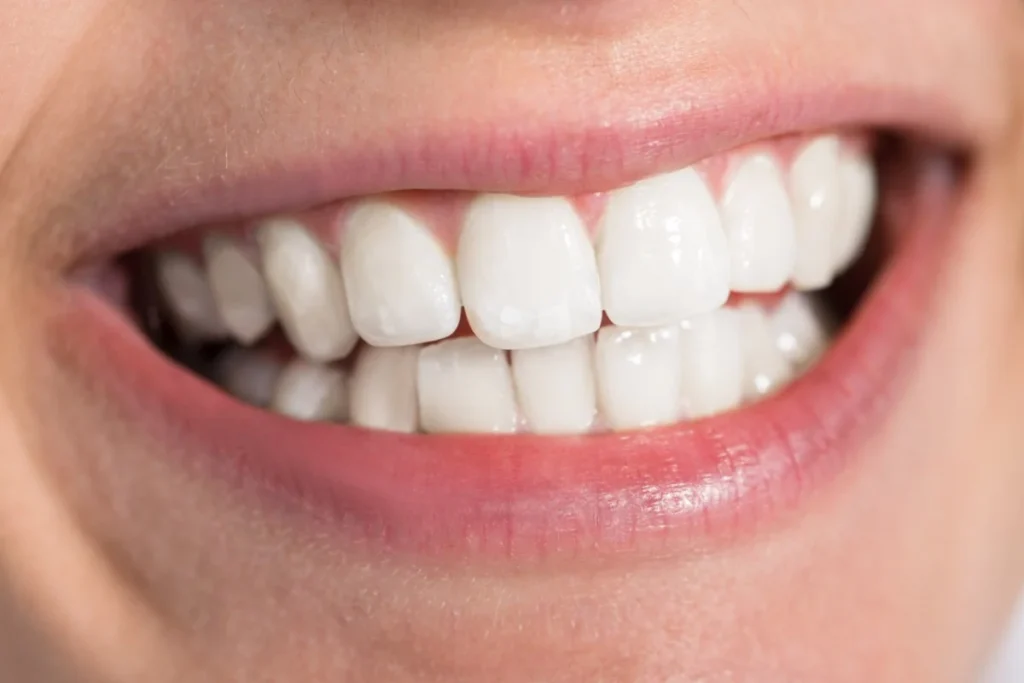
There’s something quietly satisfying about noticing your smile look a little brighter — not in a fake, instant-whitening way, but gradually, over time. That’s kind of what happens with coconut oil pulling. So yes, is coconut oil good for your teeth if you’re hoping for whiter ones? Maybe not “Hollywood white,” but it helps in its own, understated way.
Here’s why: Coconut oil doesn’t bleach or chemically strip stains like hydrogen peroxide or carbamide peroxide found in whitening kits. Instead, its antimicrobial properties and oil-binding nature lift surface stains caused by coffee, tea, red wine, or even tobacco use. Think of it as a slow detox for your enamel rather than a harsh scrub.
The gentle motion of oil pulling helps remove tiny debris, bacterial film, and food pigments that cling to enamel. Over time, that cleaner surface reflects light better — giving your teeth a natural brightness that looks more “healthy” than “processed.”
Pro Tips for Natural Whitening
If you’re aiming for a brighter smile without damaging your tooth enamel, here are a few gentle combinations people swear by:
- Coconut Oil + Baking Soda (1:1 ratio): A mild abrasive polish for weekly use.
- Coconut Oil + Activated Charcoal: Great for stain removal, but use sparingly — charcoal can be abrasive.
- Coconut Oil + Turmeric: Strange combo, yes. But turmeric’s curcumin content has anti-inflammatory and antimicrobial effects, plus it can subtly lift surface discoloration.
Pro Tip: Do this on a lazy Sunday — swish unrefined coconut oil for 15 minutes while listening to music. Then rinse and brush. Over a few weeks, you might notice a softer, brighter sheen, especially if your diet avoids staining foods.
A Note on Sensitivity:
Unlike most whitening products, coconut oil doesn’t trigger tooth sensitivity because it doesn’t dehydrate enamel. It even helps preserve moisture in the oral cavity, making it ideal for people with dry mouth or acid erosion issues.
IV. Benefit #4: Soothes Gum Inflammation and Bleeding
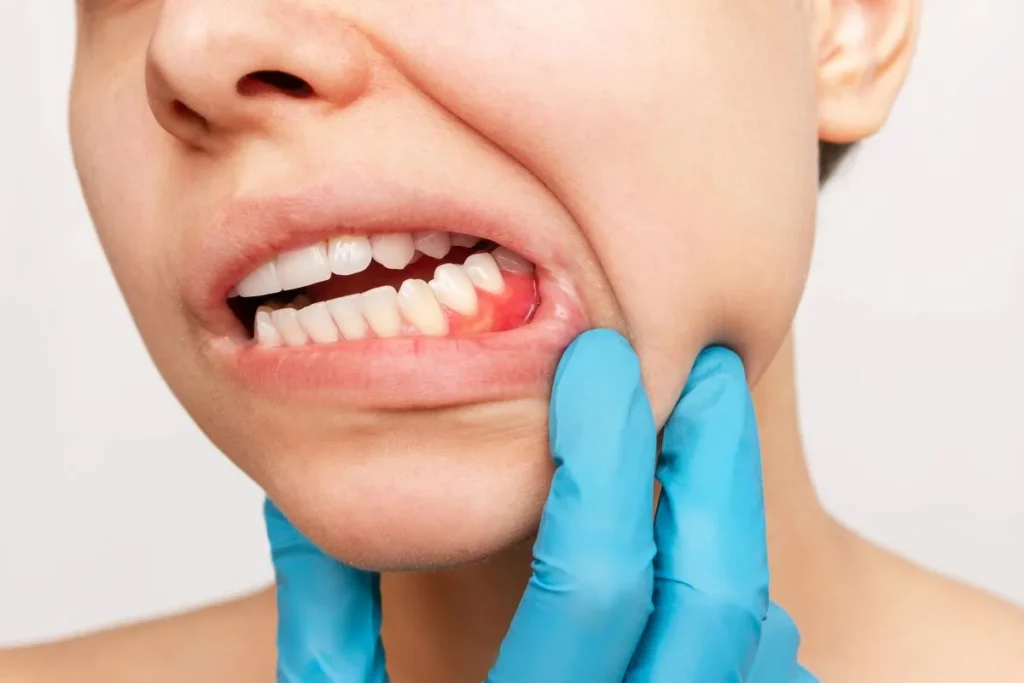
You know that little sting when you floss and your gums bleed? That’s often a sign of gingivitis, or early gum disease — and it’s something coconut oil might gently help soothe.
Thanks to its anti-inflammatory, antioxidant, and antimicrobial properties, coconut oil helps calm swollen gums and reduce redness caused by bacterial overgrowth. The main hero again? Lauric acid — it actively fights Streptococcus mutans and Candida albicans, two microbes linked to gum problems and periodontal disease.
When you swish with virgin coconut oil, you’re not just cleaning — you’re massaging your gums, improving blood circulation, and helping the tissues heal naturally. Many people notice that after a week or two, their gum sensitivity drops, their breath feels fresher, and that post-floss bleeding? Mostly gone.
Signs of Healthier Gums After Oil Pulling
If you’re doing this regularly (say 4–5 times a week), you might start noticing:
- Less redness around the gumline
- Fewer instances of bleeding while brushing
- A cleaner, fresher taste after waking up
- Reduced plaque buildup at the base of teeth
- Gums that look tighter and feel smoother
And while it’s not a substitute for professional dental care, it can be a wonderful support practice — especially if you deal with recurring gum inflammation or irritation from fluoride toothpaste or alcohol-based mouthwashes.
| Gum Concern | Conventional Solution | Coconut Oil Support |
| Bleeding | Chlorhexidine rinse | Antibacterial lauric acid |
| Swelling | Anti-inflammatory gels | Soothing MCT oils |
| Pain or Tenderness | Pain relief creams | Natural healing via oil pulling |
| Sensitivity | Sensitive toothpaste | Moisturizing barrier for enamel & gums |
Pro Tip: Try gently massaging your gums with a few drops of fractionated coconut oil after brushing at night. It’s lightweight, absorbs fast, and can reduce irritation from aggressive brushing or flossing.
VII. Benefit #5: Freshens Breath Naturally
Let’s be honest — no one likes wondering if their breath smells bad. That quick, subtle hand-cup test? We’ve all done it. And while mints or mouthwash can mask odor, coconut oil pulling actually helps fix the cause.
So, is coconut oil good for your teeth when it comes to bad breath? Absolutely — and it’s not just because it smells like the tropics. It’s because of what it does inside your oral cavity. The lauric acid in virgin coconut oil actively breaks down sulfur compounds — the stinky byproducts from bacteria living on your tongue, gums, and between teeth. These are the same bacteria responsible for halitosis, or chronic bad breath.
Oil pulling kind of “lifts” them away. Instead of just masking odor like mint or alcohol-based rinses, coconut oil reduces the salivary bacterial colony itself. And unlike chlorhexidine mouthwash, it won’t dry your mouth or disrupt your oral microbiome.
How It Works (in Simple Terms)
- Traps bacteria that cause odor (especially anaerobic bacteria).
- Balances oral pH, making your mouth less acidic and more oxygen-rich.
- Moisturizes soft tissues — helpful if you suffer from dry mouth.
- Reduces fungal overgrowth, which can worsen odor in some cases.
A 2017 study in General Dentistry even showed that people who practiced coconut oil pulling daily experienced a notable decrease in organoleptic breath assessment scores (a fancy way of saying “their breath smelled better”).
Pro Tip: To really target bad breath, swish unrefined coconut oil in the morning before eating or drinking anything. That’s when bacteria levels are highest, and the results are most noticeable throughout the day.
V. Benefit #6: Strengthens Gums and Oral Tissues
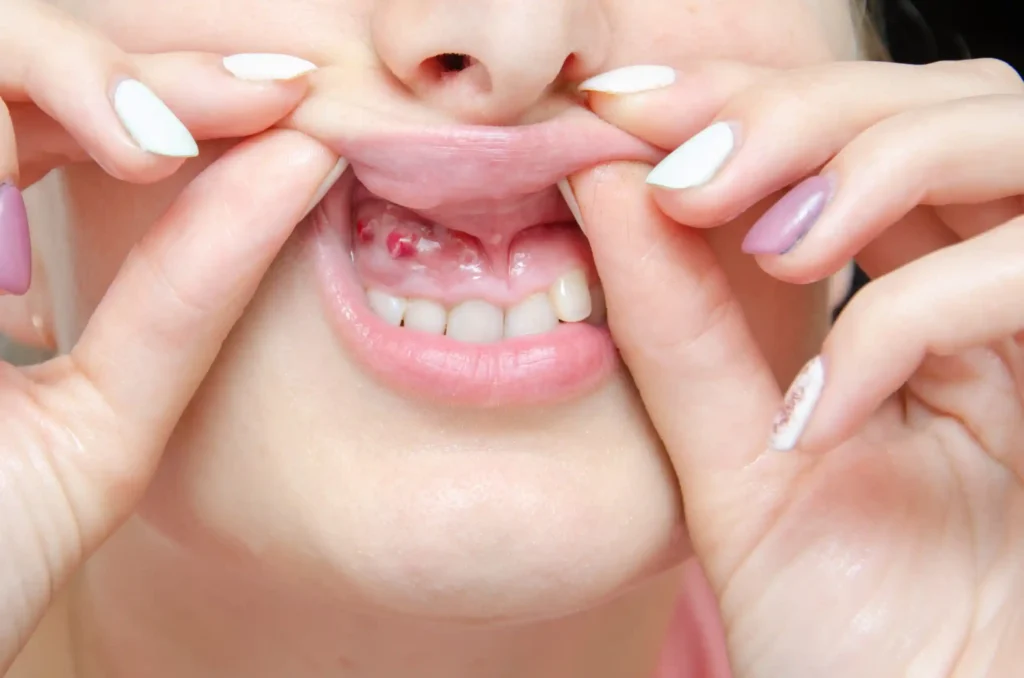
Here’s something people don’t talk about enough — your gums and oral tissues are living structures. They’re full of tiny blood vessels, connective fibers, and the periodontal ligament that anchors each tooth in place. And when you swish coconut oil, you’re doing more than cleaning — you’re giving that whole system a gentle workout.
The motion of oil pulling improves blood circulation in the gums, which may strengthen them over time. Plus, the antioxidants and medium-chain triglycerides in virgin coconut oil (like capric acid and caprylic acid) nourish the tissues, helping them stay flexible and less prone to irritation.
Think of it as myofunctional therapy — but for your mouth. The repetitive swishing engages your jaw and cheek muscles, mildly toning the oral anatomy without strain.
Signs Your Gums Are Getting Stronger
If you stick with it for a few weeks, you might notice:
- Gums appear firmer and tighter around teeth
- Less bleeding when flossing
- Fewer food particles getting trapped
- Improved tolerance to hot or cold drinks
| Oral Concern | Common Cause | How Coconut Oil Helps |
| Gum Recession | Aggressive brushing or gum disease | Reduces inflammation, improves elasticity |
| Gum Weakness | Poor blood flow | Stimulates circulation via oil pulling |
| Tissue Dryness | Dehydration or mouth breathing | Moisturizes and coats soft tissue |
| Loose Teeth | Weak periodontal ligament | Supports gum attachment over time |
Pro Tip: If your gums feel tender, mix coconut oil with a drop of tea tree or peppermint essential oil before oil pulling. Both have antimicrobial and cooling effects that soothe irritation naturally.
And maybe the best part? It’s gentle enough for daily use — no harsh alcohol, no synthetic dyes, no afterburn. Just nature doing what it’s quietly done for centuries, even before modern dental treatments existed.
VI. Benefit #7: Prevents Oral Thrush and Fungal Infections
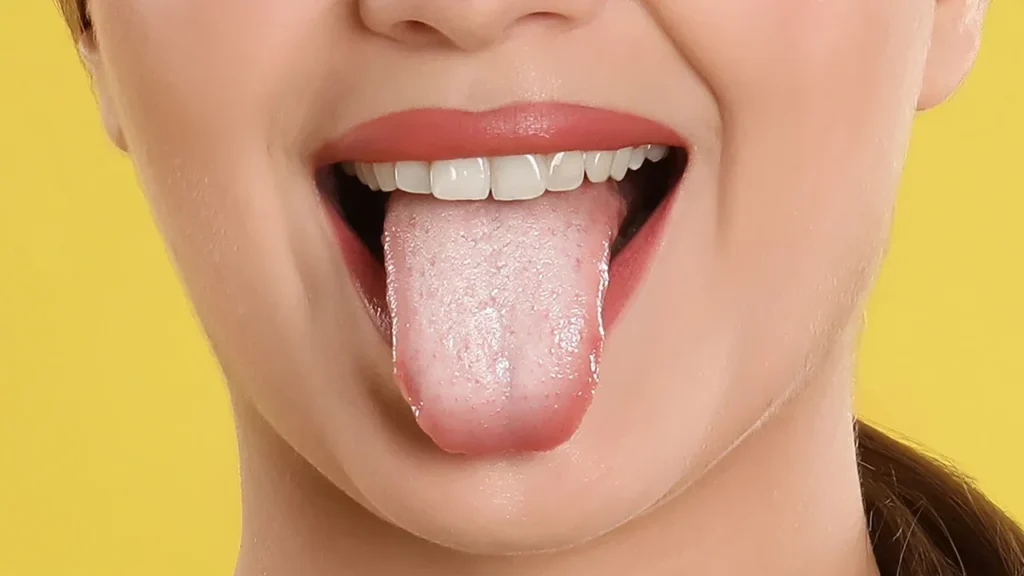
So here’s something interesting — not every mouth issue starts with bacteria. Sometimes it’s fungal, especially if you’ve ever dealt with that chalky white coating on your tongue or inside your cheeks. That’s oral thrush, and it’s caused by an overgrowth of Candida albicans.
Now, is coconut oil good for your teeth when it comes to fighting fungal infections? Turns out — yes, it’s surprisingly effective. The caprylic acid and lauric acid in cold-pressed coconut oil are known antifungal agents, capable of damaging the cell membranes of Candida yeast. It’s almost like oil pulling sweeps away the unwanted guests before they can take over.
How Coconut Oil Helps Prevent Oral Thrush
- Disrupts fungal growth and stops biofilm formation.
- Balances the oral microbiome, preventing Candida dominance.
- Hydrates soft tissues, reducing cracks or sores that harbor infection.
- Naturally deodorizes, so you get cleaner breath as a bonus.
In one lab study published in the Journal of Medicinal Food, coconut oil was shown to inhibit Candida albicans more effectively than sunflower or olive oil. That’s why many holistic dentists recommend oil pulling if you suffer from recurrent mouth infections or white tongue buildup.
Pro Tip: For fungal issues, try oil pulling twice a day — morning and night — using virgin coconut oil mixed with a drop of clove or oregano oil (both potent antifungal boosters). Just make sure not to swallow it — spit it out afterward to avoid reintroducing microbes into your system.
| Condition | Common Symptoms | How Coconut Oil Helps |
| Oral Thrush | White patches, sore mouth | Antifungal acids kill Candida |
| Angular Cheilitis | Cracks at mouth corners | Moisturizes and fights fungi |
| Tongue Coating | Thick white buildup | Removes biofilm via oil pulling |
So yes — this isn’t just an old Ayurvedic trick. It’s backed by real, measurable microbiological evidence.
VII. Supports Natural Oral Detoxification
You’ve probably seen the phrase “detox” everywhere lately — teas, juices, even skincare. But your mouth is where detoxification quietly starts every morning. It’s the gateway for everything you eat, breathe, or drink — and that means it’s also where toxic buildup can begin.
So when people ask, is coconut oil good for your teeth and overall oral detox? The answer is — definitely, yes. Oil pulling acts like a gentle cleanser for your oral cavity, binding to fat-soluble toxins and microbial residues that cling to your teeth, gums, and tongue overnight.
When you swish the oil, it mixes with saliva to form a light emulsion that can trap bacteria, volatile sulfur compounds, and even traces of heavy metals that enter through diet or dental materials.
Daily Oil Pulling Routine for Oral Detox
| Step | Action | Duration |
| 1 | Take 1 tbsp of virgin coconut oil | — |
| 2 | Swish gently around mouth | 10–20 minutes |
| 3 | Spit out into trash (not sink) | — |
| 4 | Rinse with warm water or saltwater | — |
| 5 | Brush as usual afterward | — |
And yes, that “20 minutes” part is real — it allows enough time for the oil to emulsify and absorb impurities. The feeling afterward? Clean, refreshed, light — like your mouth just got a spa treatment.
Pro Tip: For an extra detox boost, do your oil pulling before breakfast on an empty stomach. It encourages salivary flow and supports your body’s natural cleansing cycle, especially if you wake up with a coated tongue or morning breath.
What You Might Notice After a Week or Two
- A cleaner, smoother tongue surface
- Reduced morning odor
- Healthier gum color
- Fewer mouth ulcers or irritations
It’s not magic — it’s just your mouth functioning the way it’s meant to, with a little help from nature’s simplest fat molecule.
IX. Prevents Oral Thrush and Fungal Infections
So here’s something interesting — not every mouth issue starts with bacteria. Sometimes it’s fungal, especially if you’ve ever dealt with that chalky white coating on your tongue or inside your cheeks. That’s oral thrush, and it’s caused by an overgrowth of Candida albicans.
Now, is coconut oil good for your teeth when it comes to fighting fungal infections? Turns out — yes, it’s surprisingly effective. The caprylic acid and lauric acid in cold-pressed coconut oil are known antifungal agents, capable of damaging the cell membranes of Candida yeast. It’s almost like oil pulling sweeps away the unwanted guests before they can take over.
How Coconut Oil Helps Prevent Oral Thrush
- Disrupts fungal growth and stops biofilm formation.
- Balances the oral microbiome, preventing Candida dominance.
- Hydrates soft tissues, reducing cracks or sores that harbor infection.
- Naturally deodorizes, so you get cleaner breath as a bonus.
In one lab study published in the Journal of Medicinal Food, coconut oil was shown to inhibit Candida albicans more effectively than sunflower or olive oil. That’s why many holistic dentists recommend oil pulling if you suffer from recurrent mouth infections or white tongue buildup.
Pro Tip: For fungal issues, try oil pulling twice a day — morning and night — using virgin coconut oil mixed with a drop of clove or oregano oil (both potent antifungal boosters). Just make sure not to swallow it — spit it out afterward to avoid reintroducing microbes into your system.
| Condition | Common Symptoms | How Coconut Oil Helps |
| Oral Thrush | White patches, sore mouth | Antifungal acids kill Candida |
| Angular Cheilitis | Cracks at mouth corners | Moisturizes and fights fungi |
| Tongue Coating | Thick white buildup | Removes biofilm via oil pulling |
So yes — this isn’t just an old Ayurvedic trick. It’s backed by real, measurable microbiological evidence.
Conclusion
So, is coconut oil good for your teeth? Honestly, it seems like one of those old remedies that actually holds up under modern science. Between its lauric acid content, antimicrobial properties, and gentle whitening effects, coconut oil fits beautifully into a balanced dental care routine.
It won’t replace your toothpaste or dentist visits, but it does something different — it supports your mouth’s natural microbiome and keeps your gums calm, hydrated, and healthy. There’s a reason both Ayurveda and recent studies mention its ability to reduce plaque and bad breath without harsh chemicals.
If you’ve been curious about trying it, maybe start small — a few minutes of oil pulling in the morning or mixing a drop into your toothpaste at night. The point isn’t perfection; it’s consistency. Over time, your teeth might feel smoother, your gums a bit less sensitive, and your breath fresher.
It’s not magic, but it’s a mindful habit that connects ancient wisdom with today’s understanding of oral health. So yes — is coconut oil good for your teeth? Probably more than you’d expect, as long as you use it wisely and keep up with your regular dental care.
Frequently Asked Questions
1. How do you use coconut oil on your teeth?
You simply swish a tablespoon of coconut oil around your mouth for 10–15 minutes, then spit it out. It helps remove bacteria and freshen your breath naturally. Doing it in the morning before brushing gives the best cleansing and detox effect.
2. Is it good to brush your teeth with coconut oil every day?
Yes, you can use it daily as part of your oral health routine, but it’s best paired with fluoride toothpaste for full cavity protection. Regular use also keeps your gums moisturized and may help reduce plaque buildup over time.
3. Do dentists recommend coconut oil pulling?
Some holistic and general dentistry experts see it as a helpful add-on, though most agree it shouldn’t replace regular brushing and dental checkups. It’s viewed as a gentle, natural way to complement your normal dental hygiene practices.
4. Will coconut oil whiten teeth?
Coconut oil may gently remove surface stains over time, giving your teeth a cleaner and slightly brighter look — but results vary from person to person. For deeper stains, professional dental whitening or peroxide-based treatments might still be needed.
5. What are the side effects of a coconut oil mouth rinse?
It’s generally safe, though overuse can cause mild jaw fatigue or nausea if swallowed accidentally. Always spit it into the trash, not the sink. Also, avoid oil pulling if you have TMJ pain or difficulty swishing for extended periods.
6. Can coconut oil tighten loose teeth?
There’s no direct evidence it tightens teeth, but by improving gum health and reducing inflammation, it may indirectly support stronger tooth attachment. Healthy gums are key — coconut oil helps maintain the environment your teeth need to stay firm.
7. Can you replace toothpaste with coconut oil?
Not entirely — coconut oil helps with bacteria and plaque, but it lacks fluoride, so it’s better as a complement rather than a replacement. You can mix it with baking soda or use it alongside your regular toothpaste for extra freshness.
8. Do you rinse teeth after coconut oil pulling?
Yes, rinse your mouth thoroughly with warm water after oil pulling, then brush to remove any remaining oil and residue. This step ensures your teeth feel clean and prevents any leftover oil from coating the enamel.
9. How long will it take for coconut oil to whiten teeth?
Most people notice subtle whitening in two to four weeks of consistent use, especially when combined with good dental hygiene habits. Your diet, coffee intake, and brushing habits can also influence how fast results appear.
10. Can coconut oil restore enamel?
Coconut oil can’t rebuild enamel, but its antimicrobial and pH-balancing properties help protect it from further erosion and decay. Think of it as a natural shield — it helps prevent the damage that wears enamel down in the first place.

